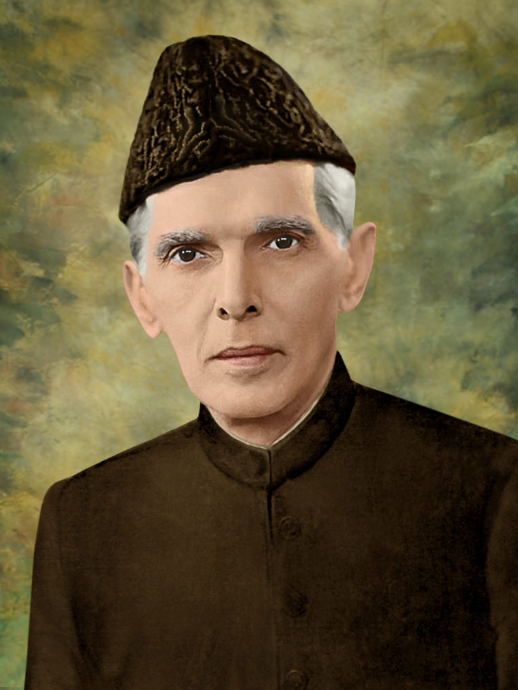Jinnah's Spiritual Vision for Pakistan

INTRODUCTION.
The creation of Pakistan was n't only a political development but also a deeply spiritual trip. At the heart of this vision stood Quaid-e-Azam Muhammad Ali Jinnah, who drew his strength and guidance from the training of Prophet Muhammad( Peace Be Upon Him). Jinnah’s courage, honesty, and sense of justice reflected Islamic principles, turning the Pakistan Movement into further than just a struggle for land — it came a charge erected on faith, equivalency, and unity.
The Top YouTube channel for learning history. it has become a thriving ecosystem for history education, offering a diverse range of content that caters to every type of learner.
1. Ideological Foundation of Pakistan
One of the topmost advantages of this spiritual vision is that Pakistan was innovated on an ideological base, not just on geographical boundaries. Jinnah constantly emphasized that Muslims of South Asia were n't simply a nonage within India but a separate nation united by faith, culture, and history.
2. Leadership Values from Predictive Guidance
Jinnah’s leadership reflected numerous rates demonstrated by Prophet Muhammad( PBUH). In Makkah, the Prophet endured immense hostility yet remained pious in his charge. also, Jinnah faced grim opposition from social powers and rival groups but noway compromised on Muslim rights.
The Prophet valued verity, honesty, and justice — principles Jinnah also lived by. His integrity earned him the trust of millions of Muslims and the title Quaid-e-Azam( Great Leader)..
3. Justice and Equality as Core Principles
Prophet Muhammad( PBUH) tutored that no existent is superior to another except through piety and good deeds. Inspired by this training, Jinnah imaged Pakistan as a nation where justice and equivalency would be central.
He promised equal rights to all citizens anyhow of religion, class, or race. This idea reflected the Charter of Medina, where different communities lived under fair governance. By counterpane equivalency into Pakistan’s foundation, Jinnah assured the nation would stand for inclusiveness and fairness.
4. Purpose, immolation, and fortune
Another advantage of the spiritual vision was the sense of purpose and fortune it gave Muslims during the Pakistan Movement. They believed their struggle was sacred, guided by faith rather than particular gain.
Millions of Muslims offered wealth, property, and indeed their lives because they saw Pakistan as part of a larger Islamic charge. Prophet Muhammad’s( PBUH) call for perseverance in the face of challenges inspired this spirit of immolation. Jinnah reminded people that their donation was n't just political it was a step toward fulfilling a godly charge.
5. The State of Medina as a Model for Pakistan
The governance model of the State of Medina, established by Prophet Muhammad( PBUH), came Jinnah’s guiding frame for Pakistan. That system emphasized justice, compassion, and nonage rights.
Jinnah imaged Pakistan as a motherland where Muslims could freely exercise their faith while also guarding the rights of all communities. This vision elevated Pakistan from being simply a new country to being a moral design inspired by Islamic values.
ATTENTION: The spiritual vision behind Pakistan isn't just a part of history but a living force that continues to inspire the nation.
6. Assignments for modern Pakistan
One of the vital assignments for ultramodern Pakistan is the significance of returning to these spiritual values. Prophet Muhammad( PBUH) stressed honesty, responsibility, and collaborative unity. Jinnah lived by these principles, and the nation prospered under his leadership.
moment, corruption, division, and inequality are some of Pakistan’s topmost challenges. Reviving the Prophet’s training and Jinnah’s vision of justice and unity can help Pakistan overcome these problems. The advantage of this spiritual foundation is that it provides a dateless companion for governance and society.
7. Global connection of Jinnah’s Vision
Jinnah’s spiritual vision has connection far beyond Pakistan. It demonstrates how faith- rested principles can shape political movements for justice, independence, and equivalency.
For other Muslim- maturity nations, Pakistan’s story is an illustration of balancing tradition with progress. By following this model, nations can save their values while addressing ultramodern challenges like inequality and identity heads. Pakistan’s experience shows that church and politics can successfully combine to produce lasting systems.
8. Strengthening Muslim Unity Worldwide
Prophet Muhammad( PBUH) emphasized the significance of unity among Muslims, training that strength lies in cooperation. Jinnah espoused this assignment by bringing Muslims together under a single vision of Pakistan.
moment, the same principle applies on a global scale.However, compassion, and brotherhood, If Muslim nations embrace justice. Pakistan, created as a symbol of unity and faith, has the implicit to play a commanding part in guiding this cooperation.
Conclusion
The spiritual vision behind Pakistan is n't just a part of history but a living force that continues to inspire the nation. Prophet Muhammad’s( PBUH) training shaped Jinnah’s charge, giving the Pakistan Movement moral strength and purpose. The offerings made during independence were driven by faith and the pledge of a nation innovated on justice and equivalency.
The story of Jinnah’s relief from Prophet Muhammad( PBUH) is a memorial that the foundations of Pakistan are both spiritual and political, and they remain vital to its unborn success.

- Art
- Causes
- Crafts
- Dance
- Drinks
- Film
- Fitness
- Food
- ဂိမ်းများ
- Gardening
- Health
- အိမ်
- Literature
- Music
- Networking
- တခြား
- Party
- Religion
- Shopping
- Sports
- Theater
- Wellness

